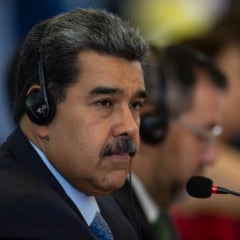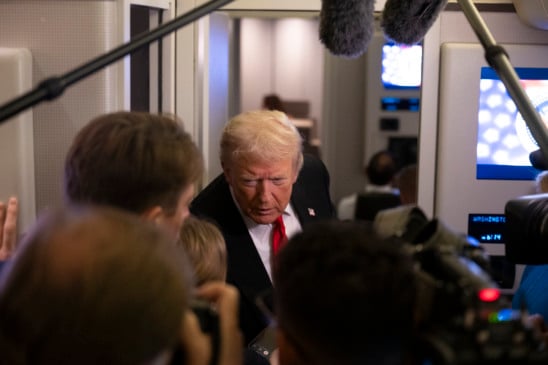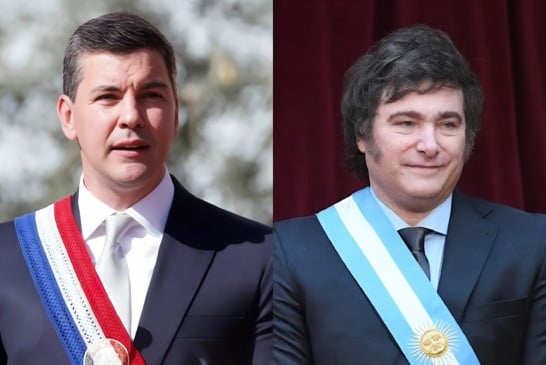Brazilian scientists and academics have written an open letter on the “science” of the coronavirus pandemic.
The coordinator of the statement is Marcos Nogueira Eberlin. He is a member of the Brazilian Academy of Sciences and holds a PhD in chemistry from the University of Campinas. After postdoctoral work at Purdue, he founded the Thomson Mass Spectrometry Laboratory, growing it into a highly distinguished lab and supervising some 200 graduate and post-doctoral students, scientists who today work as researchers and professionals all around the globe.
Winner of the prestigious Thomson Medal (2016) and the former president of the International Mass Spectrometry Foundation, Eberlin is recognized worldwide as one of the most productive mass spectrometrists ever, having published close to 1,000 scientific articles. He discovered the Eberlin Reaction during his work on gas phase ion chemistry, and he and his research group introduced EASI (Easy Ambient Sonic-spray Ionization), an ionization technique used in mass spectrometry.
Full text of the open letter:
The “science” of the Pandemic
During this pandemic, the term “science” has been used “ad nauseam”, that is, has been repeated to exhaustion: “Science, science, science”, “I’m pro-science”, “For from the science, through the science and to the science I guide my decisions and acts” and “I am, therefore, fully right to do so”. It is clear that the intention here is to lead all of us to the idea of decisions based on something unquestionable and infallible, as scientific as law, as the law of gravity.
Groups of “science experts” or famous YouTube scientists, many of them still “beginners” in science, some of them with a minimal or no experience in fighting pandemics, are selected by the establishment and the media to give “scientific aura” for the lockdown and the condemnation of hydroxychloroquine (HCQ) as an ineffective drug; worse, as a deadly poison.
That disastrous apocalyptic simulations from the “Imperial College” – this pompous name that brings us to the idea of a center of excellence of infallible, omnipotent and unquestionable knowledge, an “College of the Empire” – are being used to place everyone at home, and then, to compare data as being the absolute reference of the truth. “We did something and as a result, we reduced those many deaths. Therefore: ‘blessed be the science!'”.
But what kind of “science” is that to which they are appealing? And who, in the name of this “science”, would be allowed to speak? Science (I know that there are controversies, as scientists even debate on its meaning) is “the dispassionate search for the truth about the Universe and life”. But ironically, we seek truths that we don’t even know what those truths would be like, or where they would be found. For this reason, sometimes, ironically, even when scientists find a truth that is indeed true, yet they doubt that they have found it. We literally zigzag in the dark, searching for solutions to our problems. Therefore, we sometimes say that: “eating eggs is bad, it increases cholesterol”; and sometimes: “eggs are good, eat at ease”.
Richard Feynman put it this way: “Science is the culture of doubt”. And I would add, “science is the culture of debate, of divergence of opinions”.
Rarely, there are situations in which we reach consensus in science, even a momentary consensus. Some defend the “Big Bang” and the theory of evolution, others, including myself, are skeptical of them. Some defend with data and papers the central role of men in global warming, others defend, with the same data and papers, that human activity is irrelevant. Scientists are human beings, therefore, skeptics and enquirers who can and should speak for themselves, like all scientists have the right to do, but NEVER A SCIENTIST OR A GROUP OF THEM CAN DECLARE TO BE AUTHORIZED TO SPEAK IN THE NAME OF SCIENCE!
Nobody, absolutely nobody is allowed to speak for science or declare that he is “been guided” by science! In times of pandemic, this impossibility is even greater, as we face an unknown enemy. Data is still being collected and researches are being performed and published by scientists divided by their worldviews, and by their political and party preferences.
Whoever said he acted in the name of science, dishonestly usurped science prestige. For what type of “science” is this, unanimous and consensual, that no one has ever heard of? Could someone give me its address so I can confirm its consent? Its phone, email and WhatsApp?
As for hydroxychloroquine (HCQ), the inevitable scientific clash between theses is clear when renowned scientists from around the world and in Brazil – such as virologist Paolo Zanotto (with 7,400 scientific citations) and doctors Didier Raoult (with 148,000 citations), Philip M. Carlucci and Vladimir Zelenko – defend its use based on studies and articles, whereas other scientists, also renowned and based on the same or other studies and articles, condemn it. Numerous countries such as the USA, Spain, France, Italy, India, Israel, Russia, Costa Rica and Senegal use the drug (HCQ) to fight covid-19, whereas other countries refrain from using HCQ as one of the strategies to contain the pandemic, betting on other controversial tactics.
Who then speaks here in the name of “science”? Which group has a monopoly on reason and its exclusive authorization to be the spokesperson of “science”? Where is such authorization found?
One can choose an opinion, and base his strategy on it, this is fine, but no one should commit the sacrilege of protecting his decision risking to tarnish with it the “sacred mantle of science”.
Outraged, every day I hear mayors and governors saying at the top of their lungs that they “have followed science”. Presidents of councils and some of their advisers, and of academies and deans in their offices write letters on behalf of their entire community, as if they reflect everyone’s consensual position. Nothing could be more false.
Have they followed science? Not at all! They have followed the science wing which they like, and the scientists who they chose to place around them. They ignore the other wing of science, since there are also hundreds of scientists and articles that oppose their positions and measures.
Worse, scientists are not angels. Scientists are people, and people have likes and dislikes, passions and political party preferences. Or wouldn’t they? There are many scientists, therefore, who do good without looking at whom, I know and admire many of them. But there are also pseudoscientists who use science to defend their opinion, their own pocket, or their passion. Scientists have worked and still work hard and detached to contribute to the good of humanity, many of whom are now in their laboratories, risking their lives to develop new methods of detecting coronavirus, drugs and vaccines, when they could stay “safe at home”. But, to illustrate my point, I know scientists who have published articles, some even in major journals such as “Science” or “Nature”, with data they have manufactured “during the night”; others who have removed points from their curves, or used other similar strategies. Many scientists were at Hitler’s side, weren’t they? Did they act in the name of “science”? Others have developed atom bombs. Others still develop chemical and biological weapons and illicit drugs, by design.
The Manaus’ study with chloroquine (CQ) performed here in Brazil and published in the Journal of the American Medical Association (JAMA) [1], is emblematic to this discussion of “science”. Scientists there used, the manuscript reveals, lethal doses in debilitated patients, many in severe conditions and with comorbidities. The profiles of the groups do not seem to have been “randomized”, since a clear “preference” in the HIGH DOSE group for risk factors is noted. Chloroquine, which is more toxic than HCQ, was used, and it seems that they even made “childish mistakes” in simple stoichiometric calculations, doubling the dosage with the error. I’m incapable of judging intentions, but justice will do it. The former Brazilian Health Minister Luiz Henrique Mandetta quoted this study, supported it, and based on it, categorically stated: “I do not approve HCQ because I am based on ‘science, science, science’!”.
Another study published by Chinese researchers in the British Medical Journal (BMJ) and which is still persistently used against HCQ was also at least revolting [2]. In it, the authors declared: “we administer 1,200 mg for 3 days, followed by 800 mg for 12 to 21 days, in patients with moderate to severe symptoms”. In other words, they gave a huge dosage of the drug that could reach the absurdity of 20 grams in the end, and it given was too late to patients (HCQ should be administered in the first symptoms or even earlier). And even worse, overdosing on HCQ or any other drug for severe cases is poisonous. What do you think, was it good science? The recommended dosage in Brazil, since May 20th, 2020, by the new Ministry of Health, for mild symptoms is 2 times 400 mg in the first day (every 12 hours) and 400 mg for 5 days for a total of 2.8 grams.
In other published studies, also in these internationally renowned journals such as The New England Journal of Medicine, JAMA and BMJ [3-5], once again, “problems” are clearly noted, since or the patients were randomized in irregular ways, placing older, more susceptible or most severe and hypoxemic patients in the higher (lethal) dose groups, or more men (almost 3 times more deadly by covid than women), or more black people (in the USA, black people have displayed higher mortality) and more smokers, and where most of the deaths occurred in the first days of the studies (signs that were deaths of critically ill patients, who at this stage would be more “intoxicated” than “treated” with HCQ), or they administered HCQ isolated, when it is known that it is necessary to associate HCQ at least with azithromycin. One of these studies [5] administered HCQ only on the sixteenth day of symptoms (for really early treatment, HCQ administration should be started up to fifth day), in other words, at the end of the disease, when the drug can do little good or nothing to the patient.
These studies indicate that some scientists either forgot how “science” is done or that there is a huge effort to disprove, whatever it takes, that HCQ works. How can someone or even Councils and Academies of Medicine cite such studies as the “science” of their decisions? How can that be?
On the contrary, the study published – and today with more than 3 thousand patients tested – and carried out by Dr. Didier Raoult in France [6], using the correct dosage and at the right time, with a very low mortality rate (0.4%), and the Prevent Senior’s clinical experience in Brazil – also quite encouraging – are disqualified with very “futile” arguments such as: “Didier Raoult is a controversial and unworthy researcher”, “At Prevent Senior Clinic they were not sure of the diagnosis” (but none of the hospitalized patients with clear COVID symptoms died), “Placebo effect” (what a supernatural power of inducing our mind that reduces mortality from 40% to zero, I want this placebo!), “Study performed by a health plan company” (I do not doubt that this people indeed want to save lives, because the patients were their customers who pay their bills), and similar ephemeral arguments.
I post on my Facebook, almost daily, works, studies and incredible reports in favor of HCQ. Many sympathize with me, but some are vehemently opposed, and confront me with arguments such as: “how can such a respected scientist lose his prestige to defend such a president [Bolsonaro]?”. Some of them I know personally, others I search on their profiles. They may exist, I know, but I haven’t found even one of these Facebook friends so far who is not a leftist, fight against the current president of Brazil and, as a rule, is in favor of the clumsy #StayAtHome.
But the most important question I think it should be ask is this: are we absolutely certain by “science” that HCQ is efficient and saves lives? No, we are not. The chance is high, but certainly no scientist is sure about it. In a few years, we will know better. Are we then absolutely certain today that HCQ does not work? Of course we are not, no one honestly is certain of it. Therefore, I want to leave the “science of doubt” aside, since scientists diverge, and appeal to another area: the law. Here in Brazil the use of HCQ has even been questioned to the supreme court asking judges to settle the debate based on “science”. Nobody knows, however, who will speak “in the name of science”. But there is, in Law, a unquestionable and consensual position that could be used to define the dilemma:
“In dubio pro reo”. In other words, in case of doubt, favor or absolv the defendant (in this case, the HCQ).
If there is doubt by “science”, and a plausible possibility is the cure with HCQ, and if the drug is cheap (nearly free), available and distributed by several pharmaceutical companies ( in Brazil by Cristália, Apsen, EMS, Armed Forces , Sanofi-Aventis), and since it has minimal side effects in acute dosages of only 5 days (many take the drug daily for years), similar to all drugs (see aspirin and paracetamol), and considering that the defendant is likely to face a higher risk of life, if not medicated, then we should all be PRO-LIFE!
THAT ALL, ABSOLUTELY ALL BRAZILIANS WHO WISH TO DO SO, SHOULD HAVE THE RIGHT TO BE TREATED WITH HCQ.
It’s a fair legal decision. And that is it.
This is science, not the “science” that I like or the “science” that others have appropriated it, but the “science” that we have here and now, based on the current facts, based on reason.
Finally, let us all remember that in the face of a new disease and its extremely rapid progression in the most debilitated patients with very serious complications, and so many uncertainties in the diagnosis, and as we don’t treat papers or health forms, but PEOPLE, it is imperative to the doctor look face to face their patients and decide invoking not the “science of some”, but the valuable compass of medicine that has saved many lives since the beginnings of medicine: “THE CLINIC IS SOVEREIGN!”
Prof. Marcos N. Eberlin
Email: mneberlin@gmail.com
Open Letter signed by:
Amilcar Baiardi, Catholic University of Salvador – UCSAL, 2,500 citations
Bento João da Graça Azevedo Abreu, Federal University of Rio Grande do Norte, 77 citations
Carlos Adriano Ferraz, Federal University of Pelotas – UFPel, 8.7 thousand citations
Donato Alexandre Gomes Aranda, Federal University of Rio de Janeiro, 3,600 citations
Elvis S. Böes, Federal Institute of Brasília, 686 citations
Esteban Lopez Moreno, Federal University of Rio de Janeiro, 302 citations
Heloísa Candia Hollnagel, Federal University of São Paulo
Jaime Henrique Amorim, Federal University of Western Bahia, 407 citations
José Roberto Gomes Rodrigues, State University of Bahia
Kin Shung Hwang, no affiliation
Laércio Fidelis Dias, Paulista State University 288 – UNESP, 125 citations
Leonardo Vizeu Figueiredo, Federal Fluminense University – UFF, 280 citations
Luciano Dias Azevedo, Docentes Pela Liberdade, physician
Marcelo Henrique Napimoga, without affiliation, 3.8 thousand citations
Marcelo Hermes Lima, University of Brasilia (UnB), 6.3 thousand citations
Marcos N. Eberlin, Mackenzie Presbyterian University (UPM), 25.2 thousand citations
Ney Rômulo de Oliveira Paula, Federal University of Piauí, 150 citations
Pablo Christiano Barboza Lollo, Federal University of Grande Dourados, 1,100 citations
Pedro Jorge Zany P. M. Caldeira, Federal University of Triângulo Mineiro, 65 citations
Paulo Roberto Ferreira Louzada Junior, Federal University of Rio de Janeiro, 3.1 thousand citations
Peterson Dayan Machado Goncalves, Institute of Higher Education of Brasília
Rafael Jose de Menezes, Catholic University of Pernambuco
Rodrigo Caiado de Lamare, PUC-RJ and University of York, 11.5 thousand citations
Rosivaldo dos Santos Borges, Federal University of Pará, 761 citations
Rui Seabra Ferreira Junior, Paulista State University (Universidade Estadual Paulista – UNESP), 1.3 thousand citations
(The researchers who sign the letter add up to more than 69,000 citations.)
References:
[1] – https://jamanetwork.com/journals/jamanetworkopen/fullarticle/2765499
[2] – https://www.bmj.com/content/369/bmj.m1849https://www.nejm.org/doi/full/10.1056/NEJMoa2012410
[3] – https://jamanetwork.com/journals/jama/fullarticle/2766117
[4] – https://www.bmj.com/content/369/bmj.m1844
[5] – https://www.bmj.com/content/369/bmj.m1849
[6] – https://pubmed.ncbi.nlm.nih.gov/32387409/
The Portuguese version of the open letter can be read here.







